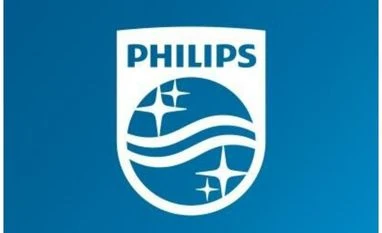The National Company Law Tribunal has dismissed the petition by Philips India to buy out the remaining 3.87 per cent from its minority shareholders, observing a "huge difference" between values determined by the company-appointed valuer and its minority investors.
The Kolkata bench of NCLT though agreed with the "discounted cash flow method" adopted by the valuers appointed by Philips India and its minority shareholders but pointed out a "huge difference" between the price of the share determined by them.
"While petitioner (Philips India) appointed valuer has valued it at Rs 740 per share, the respondent (minority shareholders) appointed valuer has valued in excess of Rs 4,500, by suggesting a range between Rs 4,605 to Rs 6,119," it said.
The tribunal suggested that the situation may require a direction to the registered valuer to disclose the parameters factored while determining the price under the discounted cash flow method to reconcile two vastly different prices determined by two different Registered Valuers while adopting the same method of valuation.
"However, we desist from doing so as we are anyway dismissing this petition on the ground that Section 66 of the Companies Act cannot be invoked under the facts and circumstances of the case," it said.
The bench also said it was not dealing with contentions and counterclaims made regarding the Foreign Exchange Management Act and observed that "in any case petitioner company (Philips India) is willing to comply with any directions as per law" regarding FEMA compliance.
"Accordingly, this application being CP/312(KB)2023 is dismissed," said a two-member NCLT bench comprising Bidisha Banerjee and D Arvind in its order passed on Thursday.
More From This Section
The NCLT direction came over a petition by Philips India, filed under section 66 of the Companies Act 2013, which deals with the procedure for a company to reduce its share capital.
A company can reduce its share capital through a special resolution, with the approval of the board, shareholders, and the National Company Law Tribunal (NCLT).
Philips India was delisted from the stock exchanges in 2004. Now, 96.13 per cent of the shareholding of Philips India is held by Koninklijke Philips NV, which is a group company.
While public shareholders hold 3.16 per cent of shareholding and rest 0.71 per cent is held by Investor Education Protection Fund.
In its section 66 petition filed in December 2023, Philips India submitted that it has been been receiving requests from these shareholders to buy out their stake. For that it had appointed KPMG Valuation Services LLP - as valuer, which determined the fair value of Philips India's at Rs 740 per equity share.
According to the company, it was send to another firm ICICI Securities Ltd, which confirmed the price.
Philips India claimed that in spite of valuation at Rs 740 per share, its board decided to pay a premium of Rs 175 per equity share which is approximately 24 per cent over the fair value and filed this petition.
However, the petition was opposed by the counsel for minority shareholders who submitted that the valuation of the equity share determined by KPMG cannot be as low as Rs 740 per equity share.
The counsel also pointed that "Valuation Report of KPMG Fairness Opinion Report of ICICI Securities and Board Resolution was issued on a single day, i.e., on 31st October, 2023".
It was contended that this is "clearly a suspicious act" with an "intention to squeeze the minority shareholders" at a throw away price.
The respondents also independently obtained a valuation from Haresh B Shah and the report dated April 11, 2024, valued shares in range of Rs 4,605 to Rs 6,119 per equity share. It has also used discounted cash flow method.
Moreover, it was also submitted that valuation of the equity shares is in breach of the Foreign Exchange Management (Non-Debt Instruments) Rules, 2019. The Promoter of Philips India are foreign companies and reduction of the share capital is nothing but an indirect mode of transferring the shares of the specified shareholders to the promoter shareholder.
In its findings, NCLT said discounted cash flow method is normally used in companies which has fewer physical assets and when the company is run as a going concern.
"Therefore, discounted cash flow method adopted by the petitioner valuer as well as the respondent valuer Haresh B. Shah seems to be in Order," it said while dismissing the plea over valuation difference.
Philips India business has four divisions - Philips Innovation Campus, which develops software for Philips group globally; Health Segment, which is in distribution of medical diagnostic imaging products; Health Innovation Campus, which operates as a contract manufacturer for Philips globally; and Personal Health, which is in distribution of products in oral healthcare, mother & child and personal care.
)